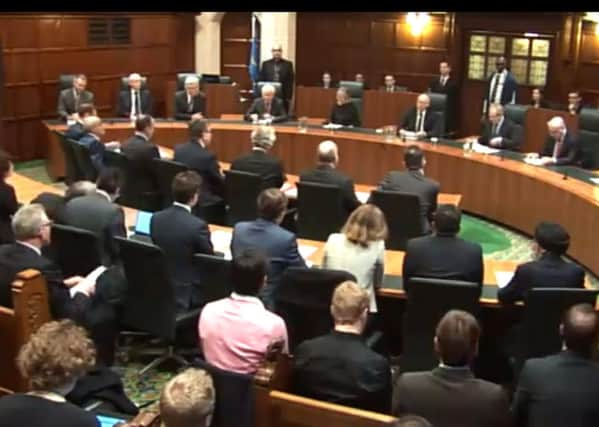YP Comment: Integral role of Brexit judges '“ and sovereign role of Parliament


As Lord Neuberger, the court’s president, made clear, this ruling was not a challenge to the outcome of the June 23 referendum, though it could be interpreted as a damning indictment of David Cameron’s failure to prepare for such an eventuality.
After all, it is the fundamental duty of an independent judiciary to interpret the law and, under the UK’s separation of powers, ensure that the Government of the day follows due process when it comes to exercising its powers. As such, this constitutional safeguard could not be more important to good governance. The regret is that neither Theresa May, nor her legal advisors headed by Lord Chancellor Elizabeth Truss, sought legal clarity on the extent of their powers, or fully appreciated the sovereignty of Parliament, prior to the Prime Minister advising the Tory conference last October that Article 50 would be enacted by the end of March 2017. If they had, they could have spared themselves, and the country, a lot of uncertainty.
Advertisement
Hide AdAdvertisement
Hide AdYet, while business leaders have been exercised by a lack of clarity over Brexit because of Mrs May’s reluctance to provide a running commentary, they may, in fact, receive more detail as Ministers, headed by Brexit Secretary David Davis, become compelled to involve Parliament more widely.
Given that sovereignty, and the repatriation of powers from Brussels to Westminster, was central to the electorate’s verdict, it’s perplexing that the Government has taken Parliament for granted. Only last week Mrs May chose to reveal her negotiating strategy, including an intention to lead the Uk out of the single market, to diplomats rather than democratically-elected MPs who have been denied the right to interrogate the PM in detail. If there are EU supporters who wish to derail this process, it’s for them to determine whether they should go against the wishes of the people.
However, if the Government is to retain the confidence of the country as it prepares emergency legislation on Article 50, it needs to be both authoritative while remembering not to take Parliament for granted. A vote on the terms of Britain’s eventual deal with the EU will not suffice, there needs to be far more debate at Westminster about how this country can make the most of last June’s momentous decision. It’s called taking back control...